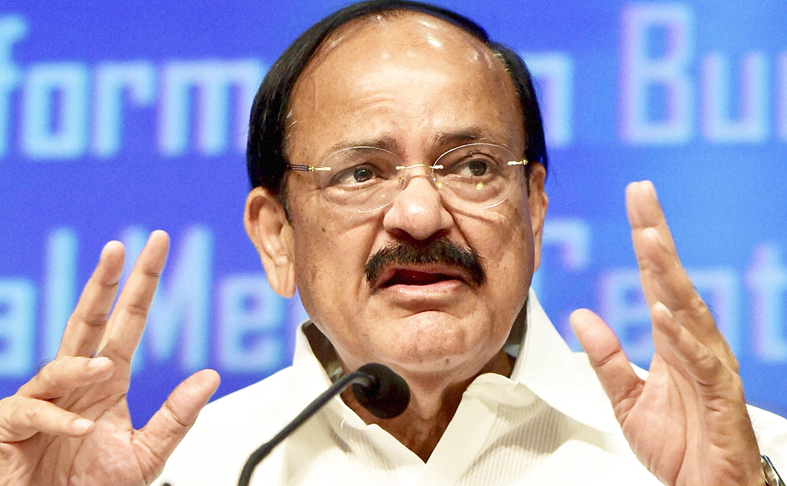NEW DELHI : Demonetisation was to bring attitudinal change among people, like what major initiatives Prime Minister Narendra Modi had taken in the last two and half years including Swachh Bharat mission aimed at, says Union minister M Venkaiah Naidu.
“Modification of mind” and bringing in transformation have been Modi’s mission, he says.
“If you look at the major initiatives of the last two and a half years, this keenness for change in mindset is clearly evident. Modiji wants the people to think and act different.
“What is Swachh Bharat mission? It basically asks the citizens to think twice before throwing any waste in the open.
“This note withdrawal also is aimed at changing our outlook towards money and the way we handle cash and the way we account for it. It is a major behavioural modification project. Demonetisation is also to bring attitudinal change among the people,” he told PTI.
Recalling what prime minister told him before launching the Swachh Bharat scheme, Naidu, who is also Urban Development Minister, said the project should not be made a political or a government event.
“I was not able to understand it initially when he told me don’t make it political or government. Then he came with the next sentence — make it a people’s movement. That is the attitudinal change he wanted to bring.
“Even Bill Gates, when he was extending support to Swachh Bharat told me, Mr Naidu money is not the issue, mindset is the issue,” he said.
Naidu also referred to various initiatives of the government such Mudra Yojana, ‘Beti Bachao Beti Padhao’ schemes, saying while one was aimed at changing the attitudes of banks towards supporting the weaker sections the other was all about changing attitudes towards women.
“You see the change it has brought in Haryana also with regard to man-woman ratio,” he said.
The minister said Modi was now stressing on crop insurance, which is all about changing the attitudes of farmers.
“People talk of insurance but they are not willing to pay their premium. So now he has given an attractive offer, I pay part of your premium, you also join. You give them confidence, because there was frustration growing and farmers were committing suicide,” he said.
Citing the case of subsidies, the senior minister said the prime minister asked the rich to give up LPG subsidy.
“Some people mocked at the idea, but he has shown that 1 crore 10 lakh people have voluntarily given up their subsidy and that is going to be given to poor people. Five crore people are going to get gas connections. This LPG subsidy is again a simple attitudinal change. He got huge response,” he said.
Naidu said India is now aspirational and after Modi became the prime minister, the aspirations have further gone up.
“In essence, it involves a whole range of attitudes about himself, about surroundings and the society and about the country. Because Mahatma Gandhi said that Swarajya should be converted into Surajya,” he said.
Citing another example of bringing attitudinal change, he said, “There is clamour for free power throughout the country for agriculture purposes. And also freebies. He is not tempted by that. He has shown to the country, in spite of not giving free power, you can still win the elections.
“Power rates are comparatively higher in Gujarat than in other states. But he brought an attitudinal change in the people, saying what is required is not free power but assured power, quality power,” he said.
Naidu said, “Instead of populism, we are implementing ‘peopleism’. Empowering the people. Making the individual as the central focal point of development. Make them to stand up on their own with self respect. Modiji does not believe in populism, he believes in peopleism.
“People are central to our schemes, thinking to our attitude. He does not believe in populism for political gain. Note withdrawal or note change is one such example.”
He said the prime minister “does not hesitate to take hard decisions in national interest. I would say he is a crusader”.
Naidu said simply by populism alone one cannot win the elections.
“They brought Food Security Act before the election. They brought MGNREGA. They came down to 44. The question is the benefits should reach the people and people should be at the centre of the developmental strategy. And then commitment. Here the leader has commitment and people have confidence in the leader.
“Otherwise do you expect people to stand in queues for hours together, have sufferings also for this many number of days and all. They know they are queuing for their better future,” he said. (AGENCIES)
Trending Now
E-Paper


